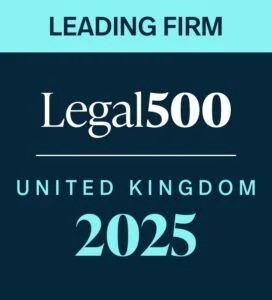As described in our previous newsletters, the UK government introduced the Register of Overseas Entities (ROE) in August 2022, with the aim of tackling anonymous ownership of UK property. However, new research highlights the lack of success in achieving this aim. According to a new report published by researchers from the London School of Economics (LSE), the University of Warwick, and the Centre for Public Data, over two thirds of properties held by overseas shell companies (109,000 out of 152,000 properties) still do not publish information about the identity of their owners.
What is the main reason for concealed ownership?
The use of trusts has been revealed as the main reason for missing or inaccessible information. It has been found that a staggering 63% of all properties (69,000 out of 108,000) where beneficial owners are hidden from the public are due to the use of trusts.
What are trusts?
In a trust, assets are held and managed by one person or people (the trustee(s)) to benefit another person or people (the beneficiaries). The person providing the assets is called the settlor, who decides how the assets in the trust should be used. There are many different types of trusts which may be set up depending on how assets should be controlled.
How are trusts used to conceal ownership in relation to the ROE?
While certain information about beneficial owners and managing officers is made publicly available via the Companies House website, all information supplied about trusts is automatically withheld from public view, except for the statement that a registered beneficial owner is acting as a trustee. Although information about the trust, the settlor and beneficiaries may need to be disclosed to law enforcement and other public authorities such as HMRC, this information is not made publicly accessible.
How are overseas entities involved in trust structures?
An overseas entity can be part of a trust structure either where it is itself acting as a trustee or where it is owned by an individual or entity that is acting as a trustee. Although beneficiaries under the trust would benefit from UK property in either scenario, there are differences in reporting obligations for the purpose of the ROE. Where the overseas entity is owned by a trustee, information about the trust may need to be provided to Companies House. On the other hand, where the overseas entity is itself acting as a trustee, this falls outside of the scope of the ROE which means that trust information need not be reported.
What changes might we see for the reporting requirements of trusts?
The Economic Crime and Corporate Transparency Bill is currently going through Parliament and is at its final stages where amendments are being considered. One of the amendments under consideration (Amendment 117 introduced by Lord Agnew) aims to close the loophole concerning opaque trusts by enabling Companies House to publish details about trusts. This would mean that all beneficial owners of overseas entities that own property would be published in this register, whether or not they involve trusts.
What other information must be submitted for the ROE?
Aside from trust information (where this is required), registration for the purpose of the ROE requires information to be submitted to Companies House about the overseas entity, its registrable beneficial owners, (in some cases) its managing officers, and information about the UK-regulated agent that carried out verification checks. More specifically in relation to the first three, as explained in our previous newsletter, the following information must be submitted: the name, country of incorporation and registered office of the overseas entity, and the birthdate, nationality, residential address and service address of each beneficial owner (and in some cases, the managing officers).
For the annual update statement, information about any new beneficial owners or managing officers must be provided. If someone is no longer a registrable beneficial owner or managing officer, the entity must provide the date on which they ceased to be registrable, and ensure that their information is correct as of that date. Information must also be provided about any individuals who both became and ceased to be a registrable beneficial owner or managing officer during the update period, and this information must be correct as of the date they ceased to be registrable.
How 3CS can help
3CS is an authorised UK verification agent, and our London-based team has considerable experience in dealing with overseas companies and international group structures, and can assist with registration and the verification process required for compliance. 3CS offers a full range of corporate, commercial and property-related legal services. If you have any questions regarding the ROE requirements or would like assistance with registration or annual update filings, please get in touch with your usual 3CS contact.


















